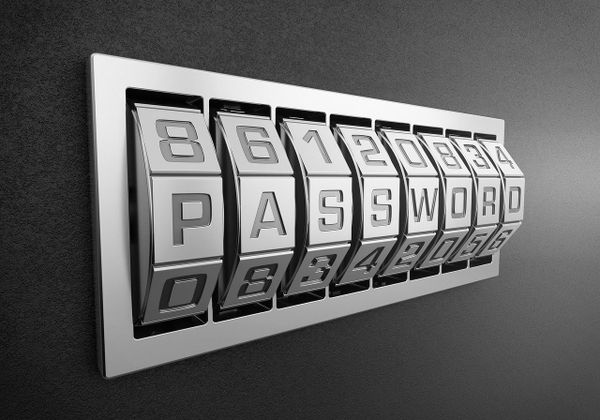The Art of Creating Strong, Yet Easy-to-Memorize Passwords

Passwords are a big part of your cybersafety. If criminals get ahold of one of your accounts, they could impersonate you, message your contacts, access your cloud storage, steal your money, or even jump to your other accounts. Privacy is, therefore, a key element and all web accounts need a secure password that can be easily memorized.
Otherwise, you have a lot to lose: intellectual property, personal data, dignity, money, friends, you name it.
Everybody knows that strong passwords are a must. But an analysis by the UK”s National Cyber Security Centre (NCSC) in 2019 found that 23.2 million user accounts worldwide were “secured” with “123456”.
Follow our handy tips to better protect your digital world. Particularly if your passwords have been leaked in a breach, you must change them immediately.
How to create a strong password:
Step 1. think of a word that is meaningful to you or your purpose. For the sake of the example, we’ll choose “password”
Step 2. add case sensitivity for some of the letters; for instance PASSword
Step 3. add numbers that are meaningful to you between the letters PASS26word
Step 4. increase the length and strength of the password with symbols and punctuation. !PASS26word
Step 5. Consider putting this word in a phrase or a silly (and hard to predict) maths equation: iLove!PASS26word or !PASS26word +5 = Onehundred
Step 6. Since cybercriminals typically use a “dictionary attack” to “guess” passwords., add a word in another language: !PASS26wordHOLA
Step 7. Use a digital identity protection solution that will let you know about leaks of your private information on Open Web or Dark Web and all major Social Media Networks. Thus, you can act immediately and prevent potential damages. Find out how it works here
At the end of the process, you’ll have a password long enough to be secure, with a mix of characters, numbers and symbols with your own system and choice of words or phrases that will make it easy for you to remember. You can check its strength with a password checker software.
You can also check if your private data has been exposed online! Use Bitdefender”s Digital Identity Protection solution to see where you stand at the moment and what the Internet knows about you.
Additional security tips regarding passwords:
* Avoid writing the password down as it can easily be seen and put to illicit use
* Don”t use the same password for all your accounts
* Do not text or email anyone your passwords or type them on computers that may be used by people other than you or your family
* Use a VPN when on public Wi-Fi. That way, when you log into accounts, no one is intercepting your username and password.
* Employ the on-screen keyboard while logging in to accounts, instead of the actual keyboard. This prevents malware such as keyloggers from recording and stealing your login credentials.
* Use two- or multi-factor authentication systems wherever available (be it biometric, SMS-based, Google Authenticator), as they can help significantly to keep you protected.
tags
Author
Alina is a history buff passionate about cybersecurity and anything sci-fi, advocating Bitdefender technologies and solutions. She spends most of her time between her two feline friends and traveling.
View all postsRight now Top posts
How to Protect Your WhatsApp from Hackers and Scammers – 8 Key Settings and Best Practices
April 03, 2025
Outpacing Cyberthreats: Bitdefender Together with Scuderia Ferrari HP in 2025
March 12, 2025
Streamjacking Scams On YouTube Leverage CS2 Pro Player Championships to Defraud Gamers
February 20, 2025
How to Identify and Protect Yourself from Gaming Laptop Scams
February 11, 2025
FOLLOW US ON SOCIAL MEDIA
You might also like
Bookmarks







